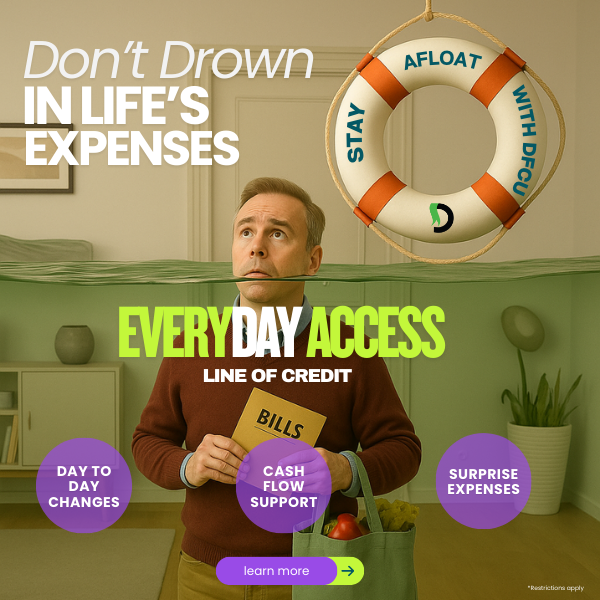Online Banking
Our Kasasa Cash & Cashback rates are now higher than ever before!
4.00% APY*
get started
Credit Score
What makes up your credit score?

If your credit score seems like some sort of mythical number that stands between you and your financial dreams, rest assured that you are not alone. Many people do not truly understand credit scores. However, taking the mystery out of the number can help you correct course and reach those goals.
How Well Do You Make Payments?
If you are consistently making payments on your loans, credit cards, and utilities, then chances are that your credit score is better than you might think. On the other hand, if you regularly miss payments, or your checks arrive past the due date, then your credit score is likely suffering. Fixing this portion of the problem is relatively simple; make your payments regularly and on time. If you find it difficult to cover your expenses, it’s time to consider where you can cut costs. If you have trouble remembering to pay on time, contact your creditors and ask about automated payments.
How Extended Are You?
How much debt do you have? Your credit score will be impacted by the number of loans, and the total of your financial obligations. Along the same lines, creditors are concerned with how much of your available credit you have used. Maxing out credit cards will negatively impact your credit score. Keeping credit card balances under 30% of the available balance can benefit the score.
How Much Credit History Do You Have?
If faced with an important surgery, most people would want to have a surgeon who had performed the procedure hundreds of times, rather than someone fresh out of medical school. Similarly, creditors have more faith in those who have a long, and strong credit history. If your lack of credit history is harming your score, it is a good idea to use credit and pay on time. Generally, those looking to build credit history will choose to start with a credit card.
How Diverse is Your Credit History?
Creditors like to see that you can handle multiple types of credit—credit cards, car loans, student loans, mortgages, etc. Having a strong mix of credit and maintaining on-time payments can give your credit score a real boost. That said, use your credit wisely. Don’t borrow what you can’t afford.
How Long Has It Been Since Your Credit Report Was Pulled?
If you apply for multiple loans in a short amount of time, it can raise red flags with creditors. Why? People who face financial trouble will often seek to borrow from multiple lenders or will attempt to open multiple credit cards to temporarily cover their debts. Several credit cards in a week, that is a red flag for lenders.
Do You Know The Difference Between Credit Score and Credit Report?
Your credit score and credit report are not the same things. Your credit score is a single number, which gives lenders a generalized idea of how strong a candidate you are. The score ranges from 300 to 850, with a higher score being preferential. A score under 660 can make it more difficult to secure a loan. Your credit report details many of the factors mentioned above. It will provide a list of your current and past debts and give the age of your report. It will include your full name, address, credit score, and your percentage of credit used.
Why Should You Care About Your Credit Score?
If you are young, renting a home, driving a car that you own outright, and only spend what can be covered by your monthly income, why would you care about your credit score? At some point during his or her lifetime, a person will generally find that a loan or credit card is necessary. Perhaps your employer will require that you obtain a higher education. Maybe your car will breakdown without warning. There is a chance that you may get sick, need an expensive dental procedure, or want to relocate. In any of those circumstances, chances are that you’ll need to borrow money. A good credit score will help to ensure that you get the necessary loan.

